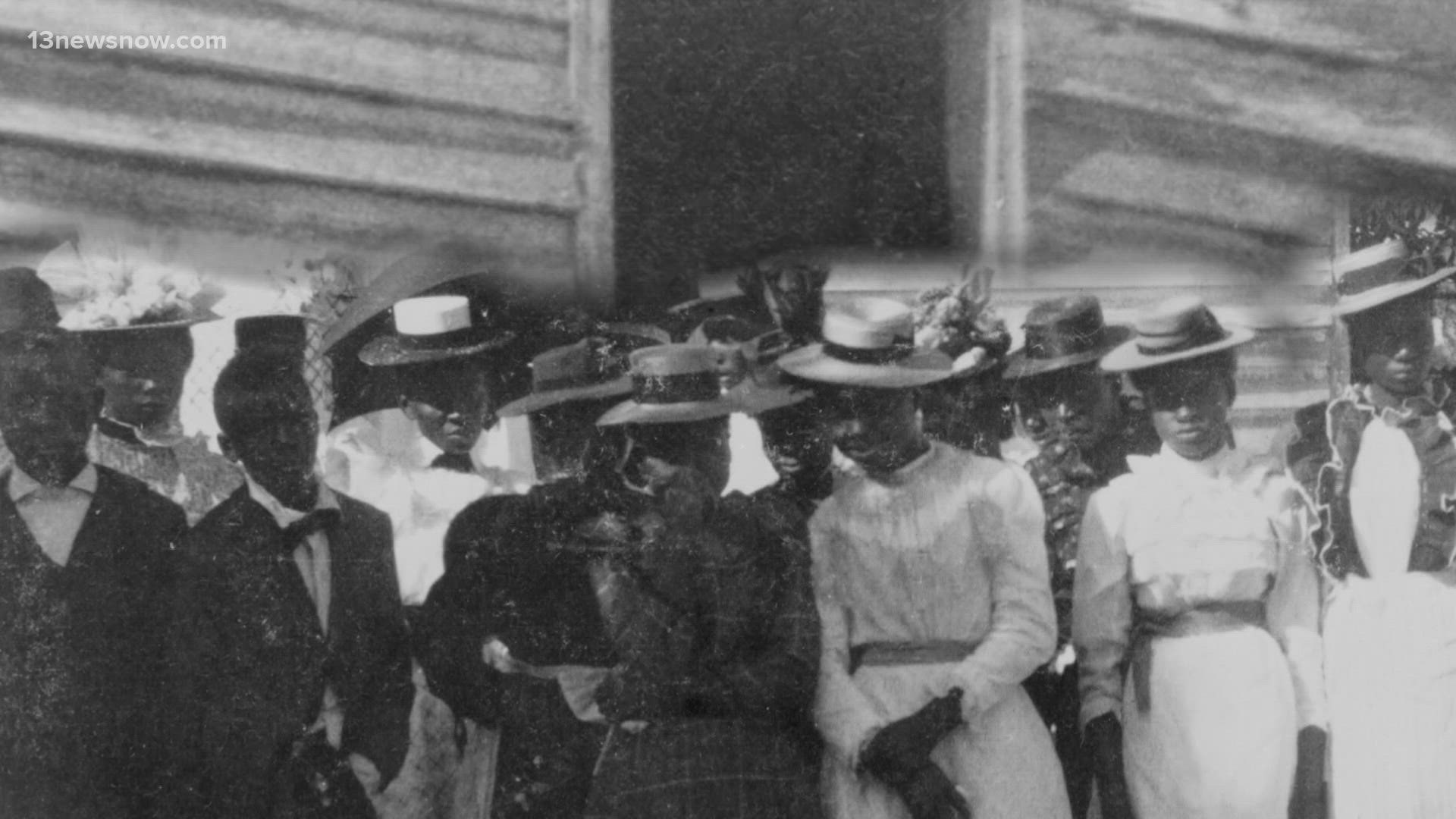WILLIAMSBURG, Va. — For generations, the untold stories of one of the oldest Black congregations in America were buried underground in Colonial Williamsburg.
This week, descendants of the historic First Baptist Church, like Janice Canaday, are closer to knowing their history.
"It's going to change the narrative. It's already happening," Canaday said.
On Sunday, descendant families agreed to let scientists examine three of the human remains found while digging at the site of the church's original structure.
In a matter of months, experts will be able to examine DNA and possibly determine race and gender of the remains. Meanwhile, Robert Braxton may finally learn more about his family.
“You never know -- I might have a descendent back there,” Braxton said.
Free and enslaved African Americans formed the church in 1776.
The church's original site had been covered by a parking lot. For the last 18 months, archaeologists have been digging near the intersection of Nassau and Francis streets, to uncover what history they can find.
More than 20 gravesites were uncovered last summer.
Canaday said there's excitement and anticipation, but there's sadness, too.
“Just the fact that they’ve been hidden away for so long, it’s so sad, because they are so much a part of the narrative of the story,” she said.
What’s next?
Scientists will apply for a permit to investigate three of the remains.
Colonial Williamsburg Director of Archaeology Jack Gary said there is a sense of urgency on this project. Once a permit is issued, the process should take about six months before results start coming in.
Connie Matthews Harshaw, president of the Let Freedom Ring Foundation, said she was excited for the descendent community.
“This community has seen Colonial Williamsburg pave over top of their ancestors. They’ve seen them remove the asphalt,” Matthews said. “And now they’ve seen them make the decision that they are going to fund and go ahead with examining the remains, so that they can pay respect and honor the people that are buried there.”
Harshaw said the process taking place in Colonial Williamsburg “sets an example for the nation to see how this really should be done,” referring to the reconciliation in the United States.
Harshaw, who negotiated the site parameters for the MLK memorial in Washington D.C., said this is the most important project of her career.
“When I see a descendent stand on that site and they cry, or they don’t even have words, they just moan – I know what that means,” she said.
RELATED: 'Local Black Histories:' New virtual project tells untold stories of Greater Williamsburg area
Most of the descendants who were children when the church was located on Nassau Street are now in their late 80s, Harshaw said.
“They lived through the Jim Crow era and they heard from their grandparents and great grandparents about the Civil War and civil rights,” Harshaw explained. “This is so important to them.”
Robert Braxton remembers being one of those kids. He would walk from his home to the church on Nassau Street.
He left his hometown of Williamsburg in 1956, but 40 years later, he returned and served on the Williamsburg City Council.
Braxton lived in an area called “Braxton Court” named after his grandfather, who built more than 100 homes in the community. His great-grandfather was a trustee at First Baptist Church, and three generations later, Braxton also became a trustee.
“The mere fact that I might have ancestors back there is really just mind boggling,” he said.
Historians also found a record of First Baptist Church members at the John D. Rockefeller Jr. Library, and the document includes a list of baptisms, membership and death dates from 1865 to 1915.
Braxton, who is 84 years old, said he would like to know about his ancestors in his lifetime. He wants his children and grandchildren to know about their history.
“They need to know this, and grandpa is going to make doubly sure that they do know this,” Braxton said.
Canaday and Braxton are hoping for results as soon as possible.
“For me, because so much of my family hasn’t known -- or those who did know, they’ve long been dead and gone,” Canaday said.
Canaday’s sister died last year at 88 years old. She worked for the Colonial Williamsburg Foundation for more than four decades, but the siblings will never be able to have these conversations about their history.
“I have six grown children and seven grandchildren. I want them to know!" Canaday said. "I want them to look at Williamsburg and know that it is very a part of their history, and to be able to appreciate it. And just not know it from one perspective, but from all perspectives."

